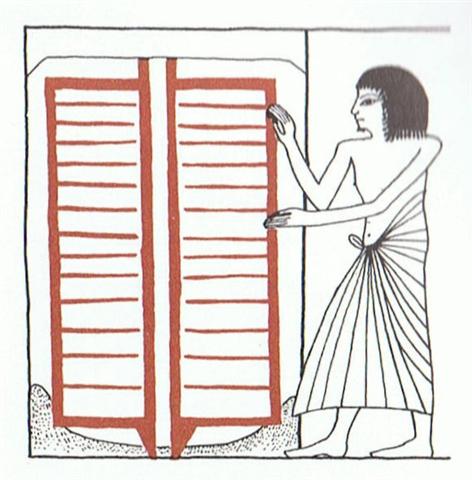What kind of dawn could there be described in Cb12? Perhaps it
was referring to how in the times of Al Sharatain this was
the time when Christ was born (*):
|
'December 19 |
20 (720) |
solstice
(355) |
22 |
|
'June 19 |
20 |
solstice
(172) |
22 |
|
January
14 |
15 |
16 (748) |
17 |
|
July 16 |
17 |
18 (565) |
19 (200) |
 |
 |
 |
 |
|
Cb11-22
(666) |
Cb12-1 |
Cb12-2 |
Cb12-3
(277) |
| ki
te vage Rei |
Te
nuku |
te
ua |
te ika |
|
ζ
Sagittae (300.1), Altair (300.3), ο Aquilae (300.5),
Bezek (300.8) |
ι
Sagittarii (301.2), Terebellum, ξ Aquilae (301.3),
Alshain (301.6), φ Aquilae (301.8) |
ε
Pavonis,
θ Sagittarii (302.3), γ Sagittae (302.5),
μ
Pavonis
(302.7) |
τ
Aquilae (303.8) |
|
Azmidiske (117.4) |
no star listed (118) |
Drus (119.9) |
no star listed (120) |
Another interpretation is to connect
ε, μ, and δ Pavonis with the hua
(offspring) in Cb12-4:

... this bird has long been a symbol of immortality, fancifully said to be
from the annual renewing of its feathers; but this is common to all birds,
and the symbolism probably is from the fact that its starry tail rendered
the peacock sacred to Juno, the immortal queen of the heavens, and thus in
classical times, as in the days of chivalry, an object of adjuration.
This bird was still
further astronomical in originally having been Argos, the
builder of the ship Argo, who was changed by Juno to a peacock
when his vessel was transferred to the sky ...
Metoro did not say te kahi
in Cb12-3, simply te ika.
However, its position was the solstice, when in the times of
Al Sharatain the Sun rose at the beginning of the Peacock
constellation.
At 'Christmas Eve Metoro told
Bishop Jaussen to count (hia). Could he have referred to
RA 304.4 for δ Pavonis? 304.4 - 11.4
(η Andromedae) = 293.
Or could he have pointed at 671 = 11 * 61 as a Sign of 'one
more' (eleven) than 10 doublemonths?
|
Egyptian
door |
 |
Phoenician
dalet |
 |
Greek
delta |
Δ (δ) |
... Delta
(uppercase Δ, lowercase δ) ... is the fourth
letter of the Greek alphabet. In the system of
Greek numerals it has a value of 4. It was
derived from the Phoenician letter Dalet.
Letters that come
from delta include Latin D and Cyrillic Д. A
river delta (originally, the Nile River delta)
is so named because its shape approximates the
upper-case letter delta (the shape is a
triangle) ...
Dalet (dāleth,
also spelled Daleth or Daled) is
the fourth letter of many Semitic alphabets ...
The letter is based on a glyph of the Middle
Bronze Age alphabets, probably called dalt
'door' (door in Modern Hebrew is delet),
ultimately based on a hieroglyph depicting a
door.

|
It strikes me that if we should exclude the last 8
glyphs on side b, then 740 - 8 = 732 = 12 * 61. I.e., 671 +
61 = 732.
6 *
61 = 366 and 366 - 340 = 26, i.e. the first half of
732 ended with *Ca14-3 (because there are 29 glyphs in line
Cb14).
|
'February 20 |
21
(52) |
22 |
23
(420) |
24 |
|
'August 22 (600) |
23 |
24
(236) |
25 |
26 |
|
March 19 |
20 |
21
(80) |
22 |
23
(448) |
|
Sept18 (261) |
19 |
20 |
21 |
22
(equinox) |
 |
 |
 |
 |
 |
|
*Ca14-1 |
*Ca14-2 |
*Ca14-3 (366) |
*Ca14-4 |
*Ca14-5 |
|
Kua tupu te ata i te henua |
|
η
Tucanae (363.0), 32 Piscium (363.2, ψ Pegasi
(363.1), π Phoenicis (363.4), ε Tucanae (363.6),
τ Phoenicis (363.9) |
no
star listed (364) |
Al
Fargh al Thāni-25 |
Uttara Bhādrapadā-27
/
Wall-14 |
χ
Pegasi (2.1), θ Andromedae (2.7) |
|
0h
(365.25) |
|
Caph,
SIRRAH
(0.5), ε Phoenicis (0.8) |
ALGENIB PEGASI
(1.8) |
|
no star listed (181) |
12h
(182.6) |
Alchita, Ma Wei
(183.1), Minkar (183.7), ρ Centauri (183.9) |
Pálida (184.6),
Megrez (184.9) |
Hasta-13 /
Chariot-28 |
|
π Virginis (182.0),
ο Virginis (182.1). θ Crucis (182.5) |
GIENAH (185.1), ε
Muscae (185.2). ζ Crucis (185.4), Zaniah (185.9) |
The half hidded henua in *Ca14-3
could refer to RA day 364, but in the times of Al
Sharatain it would have been 'February 21, i.e.
Gregorian day 52 as if alluding to 52 weeks = 364.
A slightly higher up dot at *Ca14-5 could
refer to Terminalia ('February 23) and an even higher
dot at *Ca14-1 (364) to 'February 19 (50). 364 - 50 =
314:
|
'February 15 |
16 (413) |
17 |
18 |
19 (50) |
|
'August 17 |
18 (230) |
19 |
20 |
21 (599) |
|
3-14 |
March 15 |
16 |
17 |
18 (77) |
|
September 13 |
14 |
15 |
16 |
17 (260) |
 |
 |
 |
 |
 |
|
Ca13-16 |
Ca13-17 (360) |
Ca13-18 |
Ca13-19 |
Ca13-20 |
|
oho te vae |
tagata puoko erua |
tagata puo pouo |
vero hia |
- |
|
λ Piscium (358.0), Alrai, θ Phoenicis
(358.4) |
ω Aquarii (359.2) |
σ Phoenicis (360.4) |
φ Pegasi (361.7) |
Dzaneb (362.4)
Acubens
|
|
ο Hydrae
(176.1) |
ζ
Crateris, ξ Virginis (177.0), λ Muscae
(177.1), ν Virginis (177.2), μ Muscae
(177.8) |
Al Sarfah-10 /
Uttara Phalguni-12 |
Phekda, β
Hydrae (179.3), η Crateris (179.9) |
no star
listed (180) |
|
93 Leonis
(178.0), DENEBOLA
(178.3), Alaraph (178.6)
Deneb Cygni
|
|






